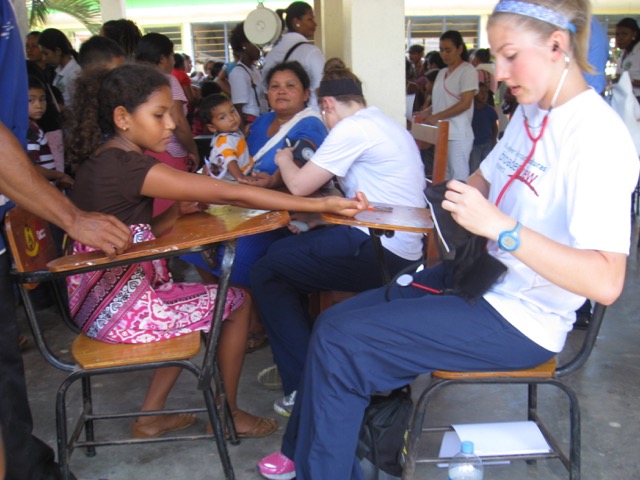Volunteer Name: Robin Shumaker
Project Location: La Ceiba, Honduras
Volunteered at: Hospital Regional/Centro de Salud
1.-How was the local ABV Coordinator and the support provided in-country?
Rafael was great whenever any of us had questions, concerns, or were unhappy with something. He worked with me on many occasions to adjust what I was doing at the project because I felt I wasn’t being useful. He also worked with me when I decided that I wanted to add 2 extra weeks of Spanish lessons. He gave us free transportation to and from the project site everyday which was great.
2- What was the most surprising thing you experienced?
At the program: The amount of time that I spent not doing anything really surprised me. I was one of the first volunteers here this summer and there was no plan for us once we got to the clinic or hospital. For the first week or two I spent a lot of time not doing anything or trying to find something to do. Many times I felt like the health professionals that we were supposed to be working with had no idea why we were there. I wish there had been a more organized plan about where we would be working and what we would be doing.
ABV: the plan goes form day to day, the local staff at the clinic needs to see what you can do, how proactive you are, and you need to always rely on the head nurse and some of the local volunteers as well as our coordinator, if you don't get any tasks assigned talk to your ABV coordinator the first day don't let days go by.
At the accommodation: How nice everything was! I had a great room with its own bathroom. The food was great, and the cold water and no air conditioning are easy to get used to. I was a little surprised at how little the volunteers and the family interacted with each other. My host home had anywhere from 2-6 volunteers staying at a time so I guess it was easy for the volunteers to separate themselves from the family. However, we never ate meals with the family and they often ate completely different things than what was cooked for us.
ABV: each accommodation has different reviews, when more volunteers are assigned to a host family, they may feel the need to have the volunteers have their time and space as it can get crowded if all eat at the same time.
About the country: The happiness of the people regardless of how poor they are! Many of the people are very poor, but they are glad to smile at you when you smile at them or try to communicate with you (even if your Spanish is not very good).
3- What was most difficult to experience?
At the program: The way that patients had to be treated because of the lack of supplies. Many times, the hospital or clinic requires the patients to buy the supplies for their visits (whether it be gauze, tape, sutures, etc.). This was hard to experience because although they were receiving “free” healthcare, they often had to pay for supplies for their visits. Also the lack of public health knowledge was hard to experience. Many people suffer from diabetes, but yet they drink Coke and Pepsi like its water.
At the accommodation: Nothing! Everything at the accommodation was great and I never had a problem with anything.
The country: The poverty. You realize that you are coming to a poor country, but when you get here it is harder to experience because you are serving these people who have little to nothing.
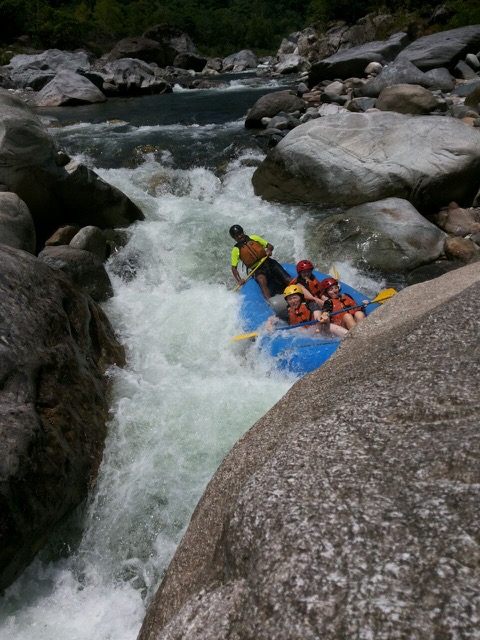
4- Any tips for future volunteers…
Clothing: Bring 4-5 pairs of scrubs, a few pairs of t-shirts and shorts to change into after your day at the hospital, and then maybe 1 or 2 nice outfits in case you go out. It’s hot, but it wasn’t much different than my weather at home so I was used to it.
Donations: Keep your donations until the end of your trip!!! I donated my things as soon as I got to the project and for the entire 6 weeks I was thinking, “I should have kept that so I could be using it right now.” It’s better to keep your donations and use them while you are in the clinic and hospital and then donate what you have left at the end of the trip. You definitely need to bring a blood pressure cuff and stethoscope, tape, and gauze. Other things are great to bring, but those are the most commonly used.
Weather: It’s hot so just expect to be hot and sweaty. Wear bug spray & sunscreen!!
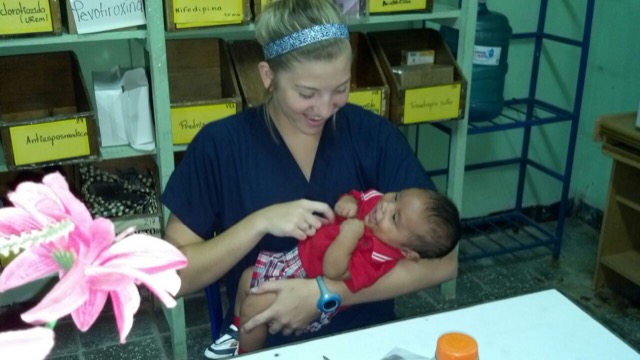
4.1-Other things volunteers should know:
a.-Your trip will be exactly what you make it. If you have a bad attitude about your placement or what you are doing, you will have a bad trip. If you’re optimistic and hopeful about what you will be doing or where you are placed then you will have an amazing trip and you will get to learn so much.
b.- If you have a problem about where you’re placed or what you’re doing TALK TO SOMEONE. Rafael or Jimmy will be happy to work out a new plan with you. They want you to enjoy your time here just as much as you do. If they don’t know you have a problem with something then they won’t be able to fix it, but if you let them know then it will most likely be resolved in a day or two.
c.- If you want to get to do things at the clinic or hospital: ask. Even if you don’t speak Spanish at all you can usually communicate to the doctors or nurses that you want to help. Many times they won’t offer to let you help or explain to you the things that they are doing, but if you ask questions and seem interested then they will have no problem explaining to you and teaching you about things. You just HAVE to be proactive about things.
d.- If things aren’t going the way you thought they would, don’t have the mindset that, “I’m paying money to be here, I should be getting to do more.” We are here to volunteer our help to a country that needs it. We are not here to gain medical experience for our resumes (although that is a nice bonus). Even if you are put doing a job that isn’t very fun or extremely gross, just remember that you’re here to serve and volunteer. There are a lot of things that you will think are wrong here, but we aren’t here to change the way this country does things, we’re only here to help.
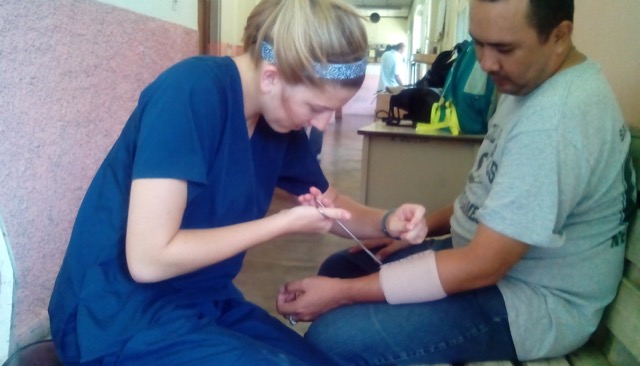
5- Personal Paragraph (ABV Program Testimonial), don’t leave blank:
My time in Honduras was unbelievably amazing. I got to see things and do things that I never would have gotten to do at home. Things didn’t always go the way that I expected, but that’s the way things are and you just have to roll with it. Your time here will be so much better if you just take everything as it comes and make the best out of it. The country was beautiful and the people were so nice!!
6- How would you describe your accommodation, meals and security:
My accommodation, meals, and security were way better than I expected them to be. I will miss the food here for sure! I never felt unsafe, and my accommodation was much nicer than I expected it to be. It made the trip SO much easier.
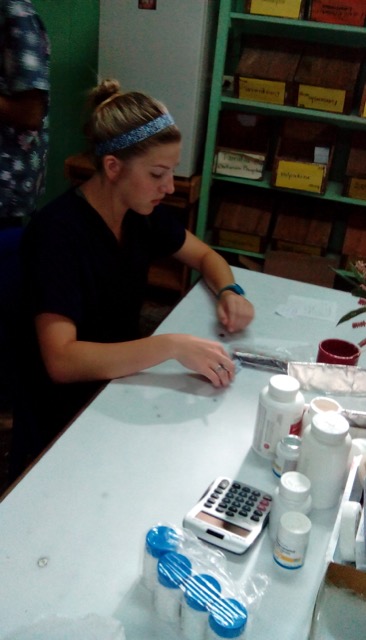
7- What was your favorite memory of this trip?
Program: Because I was here for 6 weeks I had a chance to really get to know many of the Honduran medical professionals that we worked with. I made really good friends with some of the medical students which was awesome! They’re really awesome people so really make an effort to get to know them!
Country: All the amazing things I got to do on the weekends! I went rafting, hiking, snorkeling, ziplining, and to the beach and pool! Do not waste your weekends because they will be some of your best memories of your trip!!
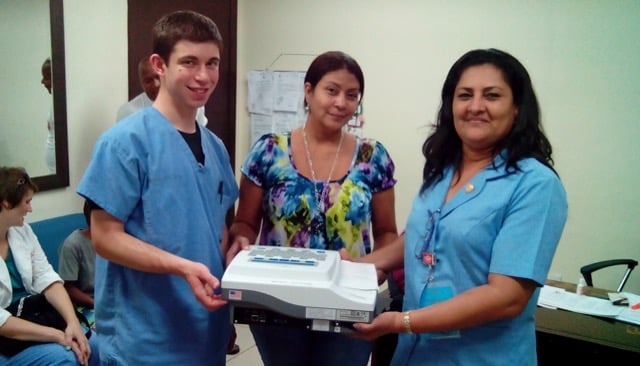
8.- How was the ABV USA support prior traveling?
Communication (Phone/emails/Online chat):
It was amazing. I had a ton of questions and they were always answered in detail and very quickly.
Website Information:
The information that the website gives about this trip is pretty accurate. The testimonials from previous volunteers are what helped me prepare the most for my trip.
9 – Are you willing to speak to other potential ABV volunteers?
Yes, of course!
10 – Can you tell us how did you find or know about A Broader View?
I was looking for something to do this summer and decided to volunteer abroad. I looked at several volunteer programs, but ABV had the highest ratings with the most reviews.
